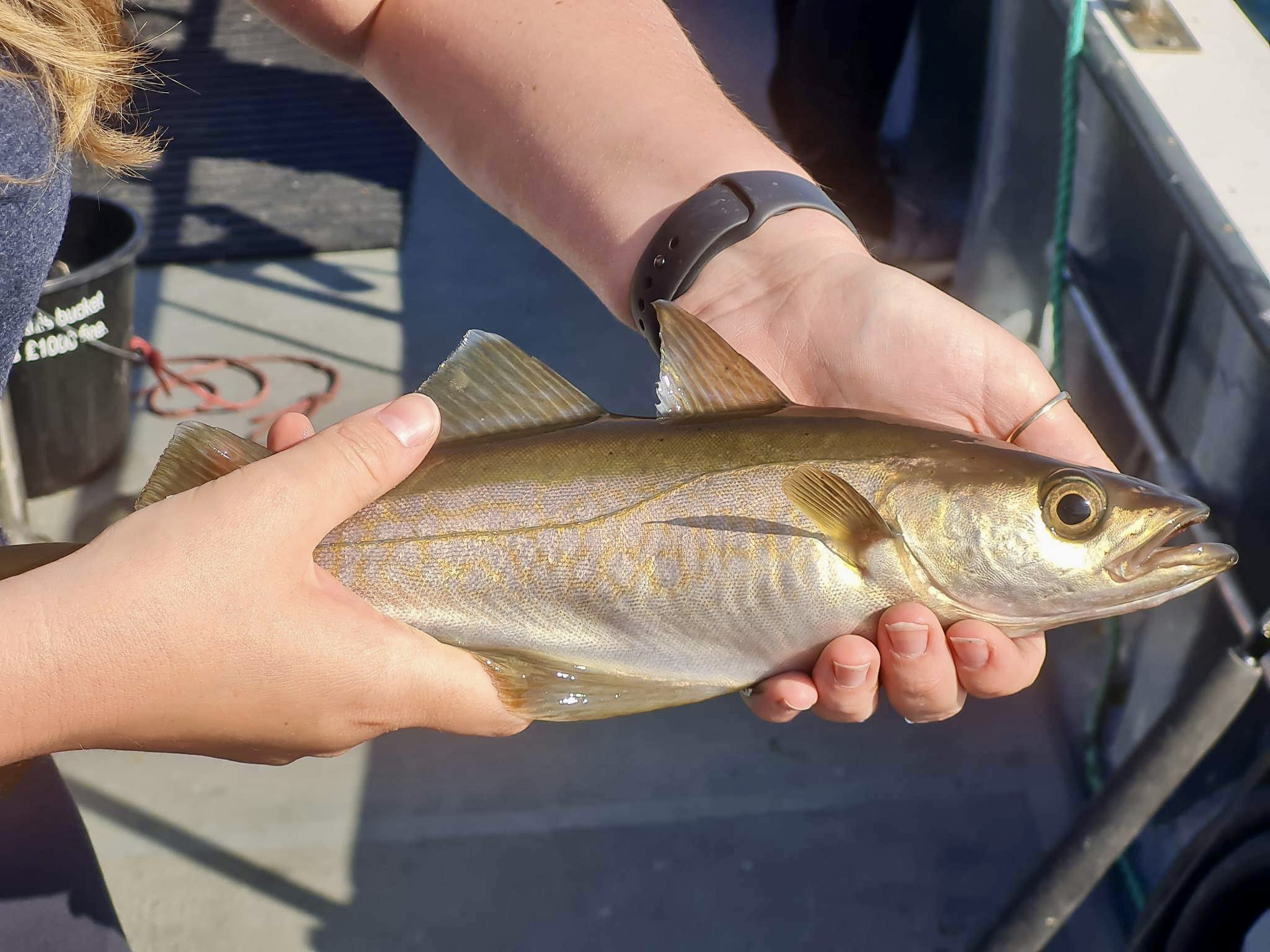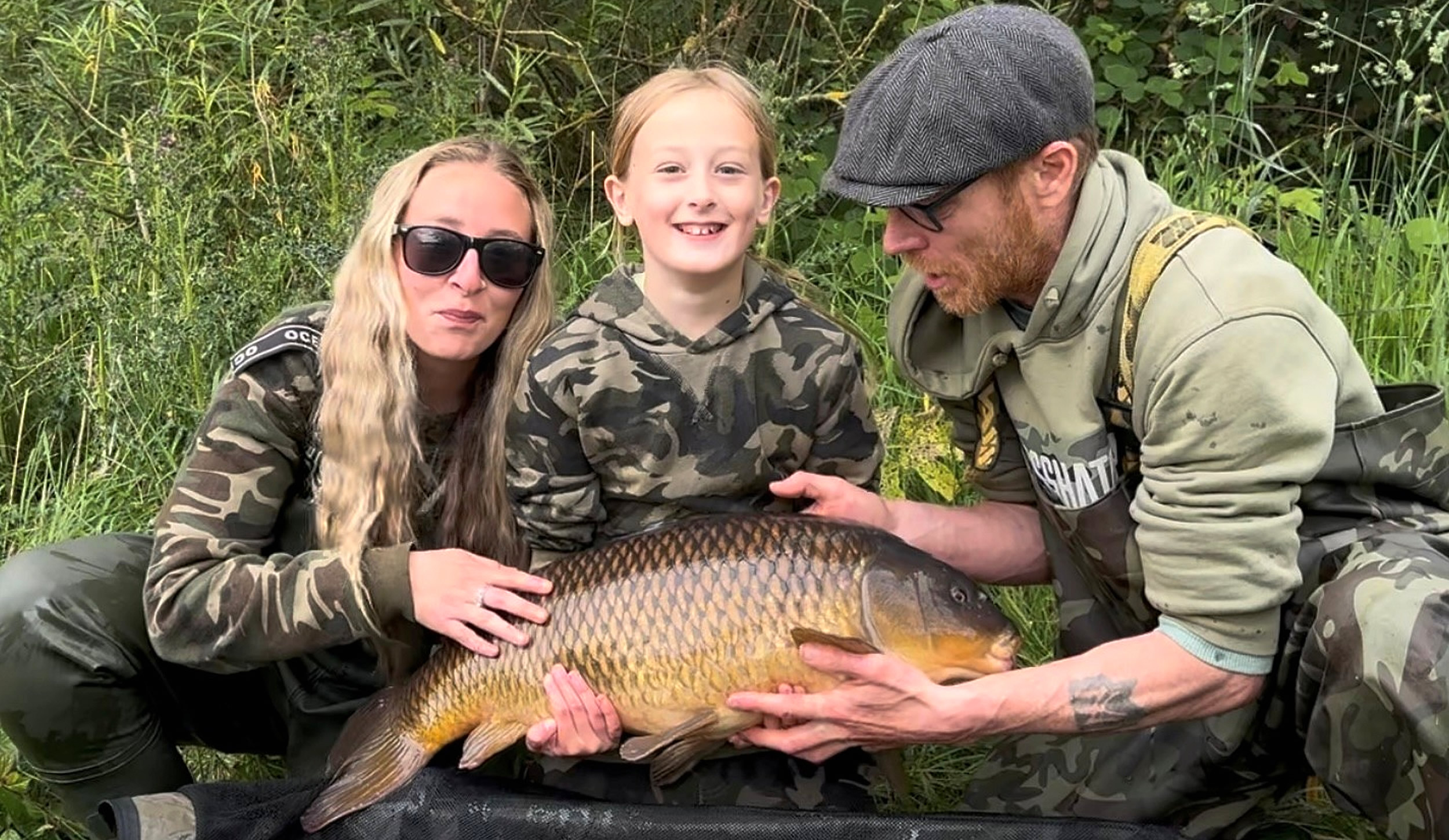
Marine
Project Pollack: Understanding a Recreationally Important Fish
As recreational sea anglers and charter skippers, we have the privilege of enjoying the bountiful marine resources that surround our coasts. One such species that holds immense recreational and socio-economic importance is pollack (Pollachius pollachius). However, recent stock assessments and observations by anglers have suggested a concerning decline in the pollack stocks and a reduction in large fish, urging local skippers and anglers to take action by instigating collaboration with scientists via a Fisheries Industry Science Partnership (FISP) to ensure its sustainable use. The Angling Trust are delighted to be collaborating with the Professional Boatman’s Association, the University of Plymouth and the University of York with support from Cefas to leverage the importance of recreational knowledge and safeguard the future of this important fish.
The Recreational and Socio-economic Importance of Pollack
Pollack has long been sought after by recreational sea anglers due to its exciting fighting qualities and delicious taste. It provides thrilling angling experiences and contributes significantly to the recreational enjoyment of our coastal communities. Beyond its sporting value, pollack supports a thriving recreational sector by directly and indirectly generating revenue for local businesses, charter skippers, and coastal communities. Through this FISP project, we hope to understand more about the socio-economic impact of pollack on recreational sea angling, and highlight how its conservation is crucial for both nature and our local economies.
Declining Pollack Population
Information from both anglers and scientists has suggested an alarming decline in pollack population in recent years. Factors such as overfishing, habitat degradation, and climate change have all potentially contributed to this decline and Project Pollock aims to try and understand how these factors combine to affect pollack stocks and distribution, and how the population has changed over the last forty years. To effectively address this issue, we must first gain a comprehensive understanding of the age-size structure of the pollack population, spatial distribution and captures from anglers, which requires extensive data collection efforts and collaboration between skippers and scientists. This project was first initiated by charter skippers whose unique insight provided a real-time snapshot of pollack populations. Upon completion of this project, anglers will be presented with the findings and will have the opportunity to suggest what, if any, management measures may be required for the species. The current data available for stock assessments for pollack is limited and the data collected during this study will allow a full stock assessment to occur.
Importance of Data Collection
In order to find out the stock status and movements, accurate and up-to-date data on pollack populations are essential to inform sustainable management strategies. With recreational sea angling now a recognised stakeholder in UK fisheries management under the Fisheries Act (2020) we have more power to lobby the government for sustainable management of recreationally important species. Scientists rely on data collected by anglers and charter skippers to monitor changes in the population, understand stock dynamics, and set appropriate catch limits. Recognition of our contribution to science and conservation is growing. Data is a powerful resource for the recreational sea angling community. By providing valuable catch data, we can drive scientific research and fill knowledge gaps, facilitating evidence-based decision-making which anglers are fully invested in.
Collaboration between Scientists and Anglers
To ensure the sustainability of pollack stock scientists can provide anglers with the necessary tools and guidance for collecting standardized data, such as acoustic tagging, length measurements and catch records. Anglers, in turn, can contribute their vital on-the-water observations and experiences. By working together, we can improve the scope, accuracy and usefulness of the data collected, leading to more informed management decisions. During this project, skippers will collect size and catch records to enable assessment of stock status, whilst scientists will age fish, find out more about their diet and how it changes through the season, pollack fecundity and also provide a first insight into the movement of the species using acoustic tagging and the extensive array of receivers present in the UK and Europe. Little is known about stock movement or even if separate stocks exist within our waters. All these data contribute to our understanding of the changes seen by anglers in pollack stocks in the last few years and the reasons behind them.
As recreational sea anglers and charter skippers, we have a unique role to play in conserving and protecting the declining pollack population. By actively driving data collection efforts and collaboration with scientists, we can contribute to a better understanding of pollack stocks, and promote evidence-based management decisions. In doing so we safeguard the sustainability of pollack thus ensuring its availability for future generations to enjoy, preserve our coastal ecosystems, and support the socio-economic well-being of our communities.
Learn more about Project Pollack.
Find out more about sea angling science.
You might also like

SENSAS FUTURE NETWORKS DO THE DOUBLE DOUBLE IN YOUTH…

NATIONAL GLORY FOR RAMMY AT LINDHOLME

Three British record fish claims ratified

Making plans for kids and holiday activities? Fun, safe…

Get Fishing Fund – Funded Project: Fishing Opens New…

Climate change fuelling dangerous river pollution across England and…

NEW BLOG: The best thing about fishing – from…

Ethan gets his Gold Get Fishing Award – young…

Summer of Fishing 2025 is here – get into…

Get Fishing Awards were at Bristol Festival of Nature…

VIDEO: It’s not all about the fishing… Check out…

ENGLAND TAKE GOLD IN HOME NATIONS BOAT CHAMPS

SENSAS FUTURE NETWORKS DO THE DOUBLE DOUBLE IN YOUTH…

NATIONAL GLORY FOR RAMMY AT LINDHOLME

Three British record fish claims ratified

Making plans for kids and holiday activities? Fun, safe…

Get Fishing Fund – Funded Project: Fishing Opens New…

Climate change fuelling dangerous river pollution across England and…

NEW BLOG: The best thing about fishing – from…

Ethan gets his Gold Get Fishing Award – young…

Summer of Fishing 2025 is here – get into…

Get Fishing Awards were at Bristol Festival of Nature…

VIDEO: It’s not all about the fishing… Check out…

ENGLAND TAKE GOLD IN HOME NATIONS BOAT CHAMPS

SENSAS FUTURE NETWORKS DO THE DOUBLE DOUBLE IN YOUTH…

NATIONAL GLORY FOR RAMMY AT LINDHOLME

Three British record fish claims ratified

Making plans for kids and holiday activities? Fun, safe…

Get Fishing Fund – Funded Project: Fishing Opens New…

Climate change fuelling dangerous river pollution across England and…

NEW BLOG: The best thing about fishing – from…

Ethan gets his Gold Get Fishing Award – young…

Summer of Fishing 2025 is here – get into…

Get Fishing Awards were at Bristol Festival of Nature…

VIDEO: It’s not all about the fishing… Check out…









